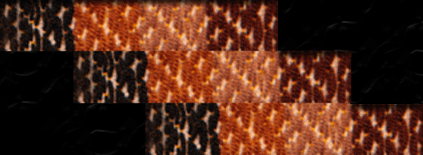![]()
![]()
BIOGRAPHY
René Borda Arnéz was born in Cochabamba - Bolivia on September 7, 1969. His musical skills are essentially obtained and inheritance from their parents RIP Guillermina Borda de Arnéz (in singing) and Valentin Borda Cayo (in the charango), he listened with great enthusiasm every day to his parents just being a child of 6 years and delighting in every moment with her mother's sweet singing and strumming the shocking charango of his father, never imagining that years later he would dedicate himself professionally to the music.
The diversity of music styles René plays ranging between instrumental, folk, Andean ("saya", "Tinku", "morenada", "carnivalito", "chuntunki", "cumbia andina "), Native-American rhythms and meditative music and Latin American music in general, their performances are basically in "Spanish" and "Quechua" (original language of the "Incas"). The instruments with which René delight of his audience in their presentations, are basically Andean as "flutes", "panpipes", "toyos", "Antara" (made of thin bamboo Andean) also "guitar", "charango" "hype", among others.
René is the sixth of nine children born to Guillermina and Valentin (RIP) in Punata village in the beautiful city of Chochabamba, René always showed musical interests, he loved to whistle, hum and sing familiar songs of Bolivian folk groups well recognized worldwide as "Los Kjarkas", "Sabia Andina" among others.
When René was 10 years old, his mother Guillermina ask in a family consensus about the possibility of buying a guitar and encouraged René to develop their musical skills or perhaps push him to join a youth folk group in the region, but unfortunately there was no majority consensus and they all preferred that he will be all devoted to school.
In 1994 at the age of 24, René decided to make a trip and took a tour to the middle east, starting in Egypt on the major cities of the pharaohs, he also visited the Sinai desert where he met a group of tourists that invite him to join them on their way to the Red Sea in Israel, of course he did not reject the invitation to visit the Holy Land, after few days being there he met in an exhibition of artists a Bolivian folk group called "Bolivia Canta" = "Bolivia Singing" formed by the Balderrama brothers. When listening to them, he got transported to his childhood, where he would have liked to venture also into music. In the same event he met some locals and a lot of Latin people from several countries to who easily integrated.
In 1995 he met with Melkis, Jaime, Roberto and Freddy (from Bolivia) who had an amateur group of folk music, René became an integrant these group and started playing "Panpipes" (typical Andean instrument made from bamboo), taking this opportunity as a way to prove himself if his skills were real or not, but he didn’t even imagine that this would be the beginning of a great musical career that still is booming and development nowadays.
In mid-1996 he met with Victor Aramayo and Luis Tárraga members of the Bolivian group “The Chaskis” who arrived to the holy land from Russia. René was invited at that time to become part of this group and continued its musical learning for one additional year; traveling with them the most popular cities of South Africa. Later on in mid-1997 Victor leaves the group and Adalit Prado joined “The Chaskis” group playing all together until mid-1998.
In 1998 when René felt the need of making a good research about the folk music and to learn new experiences about folk group based in Europe, traveled to Germany and met there with Peruvian and Ecuadorian folk groups with which gain and enriched musically, learning to play various and different instruments and encourage himself to start singing.
In mid-1999 he returned to Holy Land and joined again with Luis Tárraga in the group "Los Chaskis".
In 2000 Gabriel and Napoleon Balderrama from the group "Bolivia Canta" joined the group "Los Chaskis" and continued working together through an additional year until in 2001 when the group “Los Chasquis” was split and each of the members made their way individually. That was the time when René began his solo career.
In early 2003 René decided to return to Europe, this time to share as much music experiences as he could with his friends and traveled to the Netherlands, France, Spain, Germany and Poland.
In 2004, returned to the Holy Land (where he is a resident since then.)
With the mixture of cultural influences received through the years, René tried different ways and cross the boundaries of pure Andean folklore and raids at different rates as well as the American Indian, slow music, tropical cumbia and salsa, and even pop rhythms; all this without leaving their prized Andean instruments "flutes", "panpipes", "toyos", "charango" among others and in additional playing conventional instruments like the guitar in his performances.
In 2005 he composed his first "single" which called "My Destiny" in the same year he debuted as the main single of his second musical album.
In 2008 he traveled to his native Bolivia where he spent a great season in the recording studio and recorded collecting folk hits also recorded his own authorship singles later select to end their recent recordings.
René is a faithful and powerful display of work under the orderly and continuous learning to ensure that dreams can become realities.





















